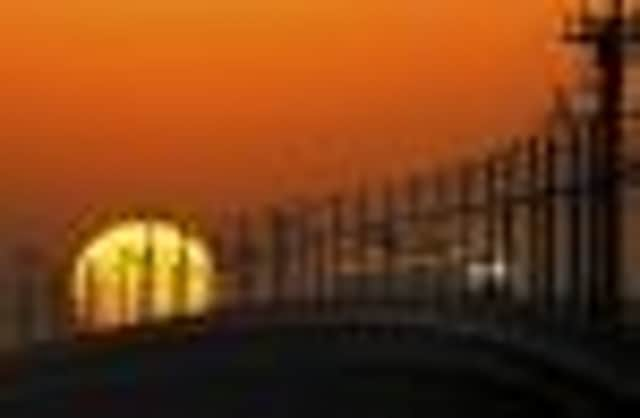China’s leaders in government reorganisation plan


Though details of the streamlining have yet to be announced, general secretary Xi Jinping and other Communist Party leaders opened a three-day meeting yesterday to discuss a government reorganisation plan, state media reported.
The closed-door meeting of the Central Committee will also approve the appointment of top government officials who will be announced early next month at the annual session of the ceremonial legislature. That will complete a power transition begun in November when Mr Xi was installed as party leader.
Advertisement
Hide AdAdvertisement
Hide AdA goal of the proposed government consolidation is to create “super ministries” that pull together a jumble of agencies with overlapping duties in broad fields such as transportation, media, energy, finance and health.
Under scenarios discussed in official media, the Ministry of Railways might be united with agencies that oversee road and air travel, as many more Chinese have started to drive and fly in recent in years.
The Ministry of Culture might absorb regulators for film, publishing and TV, where boundaries have been blurred by the rise of internet- and mobile phone-based media. The hated family planning agency, which enforces China’s birth limits, might be folded into the Ministry of Health.
Creating fewer, bigger ministries would fit with party pledges to make the economy more productive and keep incomes growing. Mr Xi has called for a “renewal of the Chinese nation,” raising hopes a new leader whose attitude toward reform is still unclear might throw his political weight behind reforming the government.
There is, however, no indication the restructuring will affect state-owned companies that dominate most major industries including telecommunications, banking and oil and have direct – and often profitable – ties to the top ranks of the party.
If leaders take action, they are likely to produce no more than one or two concrete proposals to start, and that might not be until August, said a European diplomat who follows the internal government workings.
And if they fail to release firm plans before the party’s plenum late this year, that will suggest they have failed to agree, said the diplomat.
In a reflection of political resistance, the internationally respected Chinese business magazine Caijing says proposals to group together “big energy,” “big culture,” “big finance” and “big system reform committee” were dropped from a draft plan.
Advertisement
Hide AdAdvertisement
Hide AdAnd merging rival agencies into one big ministry is no guarantee party factions that run them will co-operate.
The Ministry of Railways is the biggest example of throwbacks that reformers say must evolve for China to thrive.
In an echo of the 1960s, when ministries were powerful, self-contained empires, it still operates its own police force and courts. Other state entities shed such functions years ago.
Its spending is huge; last year’s capital spending plan was 745 billion yuan (£75 billion) – comparable to the 670 billion yuan (£69 billion) military budget.
The ministry has built the world’s biggest bullet train network but China’s poor majority can’t afford it and slower lines are crowded.
The political opening for change might have come when the railway minister, Liu Zhijun, was dismissed in February, 2011, after corruption allegations over sub-standard materials used for high-speed lines.
Later that year, a collision between two bullet trains that killed 40 people fuelled public anger against it.
Times change
China has undergone repeated bouts of government restructuring to keep pace with its rapidly advancing society and economy.
Advertisement
Hide AdAdvertisement
Hide AdIn 1982, the number of Cabinet-level ministries and commissions was slashed from 100 to 61. In the 1990s, museum pieces such as the Ministry of Machine Building that were no longer needed to set prices and tell companies what to produce were eliminated. In 1998 the number of ministries was cut further from 40 to 29. At the same time, Beijing created Western-style regulators for banks.
A Ministry of Commerce was formed in 2003 to bring together trade and planning agencies, simplifying some trade regulation to make it easier for private sector traders to function.
Yet such change can provoke furious opposition. In the last round of proposed reforms in 2008, the only thing leaders finally agreed on was to make the environmental regulator a full-fledged ministry in response to an avalanche of pollution scandals.